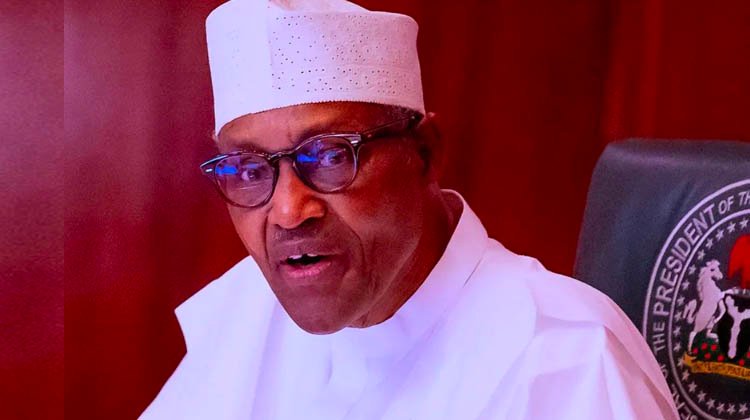President Muhammadu Buhari commissioned the Pinnacle Oil and Gas FZE Terminal in Lekki, Lagos, on Saturday, saying the facility’s operations have reduced traffic congestion in the Apapa area, as well as the cost and delivery of petroleum products to many parts of the country.
The President congratulated the Chief Executive Officer of Pinnacle Oil and Gas Limited, Peter Mbah, for establishing the massive terminal facility and providing hundreds of jobs to Nigerians in a video message at the facility’s inauguration.
The President described the investment as proof of the success of his administration’s agenda to transform the nation’s economy, adding that the government anticipates many more large-scale investments in the future.
President Buhari assured investors of the Federal Government’s continued support in efforts to elevate the country’s growing prosperity, saying, “Provision of energy security is one of the cardinal points of our administration.
”We have recognized that seamless supply and distribution of petroleum products is challenged by infrastructure deficit and complicated by the congestion in the Apapa areas of Lagos since the start of our administration in the year 2015.
”We provided targeted support to the energy industry by providing an enabling environment, including regulatory facilitation, to ensure investment in critical infrastructure.
”I am happy today that Pinnacle Oil and Gas limited leveraged the opportunities and established this massive terminal facility.
”I am happy to also note that further expansion works which are starting will further provide incremental value, especially more employment to our teeming youth population.
”The success of our agenda to transform our country is clearly demonstrated by this massive investment and the obvious contributions it has made to our overall economic well-being.”
President Buhari also stated that the Federal Government would continue to encourage and support investors in the oil and gas sector to take advantage of the ongoing reforms enshrined in the Petroleum Industry Act and replicate the feats accomplished by Pinnacle Oil and Gas Limited.
In his remarks, Pinnacle’s CEO expressed confidence that the terminal with a capacity of over one billion litres will deliver on its promise by positively impacting the downstream oil and gas industry.
Mbah stated that the ultra-modern purpose-built petroleum product intake, offtake, and storage facility will facilitate the efficient receipt of imported petroleum products, improve overall energy security in the country, and result in significant cost savings at the pump.
He revealed that the company is already in advanced talks with the Dangote group about collaborations to supplement the operations of the nearby Dangote refinery, which is set to open soon, with the goal of forming the nucleus of Africa’s largest energy logistics hub.
The energy minister thanked President Buhari, federal and state officials, as well as the host community, for their unwavering support in bringing the project, which began in 2011, to fruition.
Mbah described the facility as a world-class petroleum terminal capable of handling products in both directions, import and export, and added:
‘‘Mother Vessels arriving at the facility will have the opportunity to berth at either of our two offshore berths. Either the Conventional Buoy Mooring (CBM), which is in 17m of water depth and can handle vessels of up to 120 million litres, or our Single Point Mooring (SPM), which is in about 23m of water depth and can handle vessel sizes of up to 200 million litres.
”These moorings are connected to our storage facilities by four networked pipelines of 40km total length.
”These pipe networks are designed to empty the vessels in a maximum of two days, a significant improvement on the previous duration which could take up to 30 days.
”Our shore tank farm is currently able to handle up to 300 million litres of Premium Motor Spirit (PMS) as well as diesel or Automotive Gas Oil (AGO), and the facility is designed to permit rapid discharge into trucks for evacuation at a rate of up to 20 million litres per day.”
Mbah revealed that the facility’s funding, which totaled more than $1 billion, was provided by a consortium of Nigerian banks.
READ ALSO: Currency devaluation, payment issues affect African financial institutions – UBA

